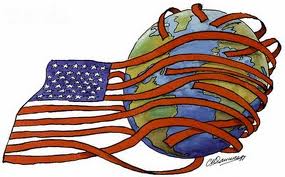War on drugs. War on poverty. War in Afghanistan. War in Iraq. War on terror. The biggest mistake in American policy, foreign and domestic, is looking at everything as war. When a war mentality takes over, it chooses the weapons and tactics for you. It limits the terms of debate before you even begin. It answers questions before they’re even asked.
When you define something as war, it dictates the use of the military (or militarized police forces, prisons, and other forms of coercion) as the primary instruments of policy. Violence becomes the means of decision, total victory the goal. Anyone who suggests otherwise is labeled a dreamer, an appeaser, or even a traitor.
War, in short, is the great simplifier — and it may even work when you’re fighting existential military threats (as in World War II). But it doesn’t work when you define every problem as an existential one and then make war on complex societal problems (crime, poverty, drugs) or ideas and religious beliefs (radical Islam).
America’s Omnipresent War Ethos
Consider the Afghan War — not the one in the 1980s when Washington funneled money and arms to the fundamentalist Mujahideen to inflict on the Soviet Union a Vietnam-style quagmire, but the more recent phase that began soon after 9/11. Keep in mind that what launched it were those attacks by 19 hijackers (15 of whom were Saudi nationals) representing a modest-sized organization lacking the slightest resemblance to a nation, state, or government. There was as well, of course, the fundamentalist Taliban movement that then controlled much of Afghanistan. It had emerged from the rubble of our previous war there and had provided support and sanctuary, though somewhat grudgingly, to Osama bin Laden.

